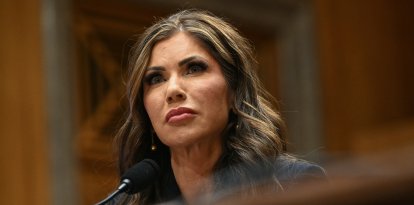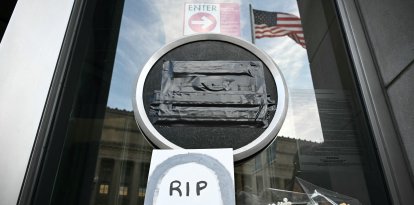Tennessee and Kentucky judges block state laws banning transgender medical treatment for minors
Gender reassignment surgeries will remain banned while the future of the laws are decided in court.

Bandera trans sobre figuras en negro.
The future of trans medical treatment is being defined in the federal courts. Earlier this year, a group of mostly Republican legislatures passed state rules regulating this type of medical intervention. These were followed by a wave of lawsuits, which are now being heard in federal courts.
June has been a month with judicial developments, such as the annulment of such a law in Arkansas or the pause in Indiana. Now, Tennessee and Kentucky await the judgment of their laws.
On Wednesday, district judges in both states halted several provisions of the laws regulating medical treatment for children.
Tennessee
Judge Eli Richardson paused the ban on providing hormones and puberty blockers to minors.
However, Richardson left the ban on gender reassignment surgeries in place, including double mastectomies.
He thus halted some of the main provisions of SB1, which would have taken effect on July 1. This ruling is temporary, as a permanent law will be decided as the trial progresses. Republican legislators have promised to exhaust the judicial process:
Senator Jack Johnson, who co-sponsored the bill with Lamberth, was "disappointed." "I have complete faith that the legislation we passed is constitutional," assured Johnson, who vowed he would go all the way to the Supreme Court if necessary.
Kentucky
The court decision in Kentucky was similar to that of its southern neighbor. U.S. District Judge David J. Hale allowed the state's children to continue receiving hormone treatment and puberty blockers.
Although most of the law went into effect automatically, several of its provisions began to take effect on Thursday. Some of those that remain in force are the prohibition of surgeries, teaching lessons in public schools on sexual identity or sexual orientation, and of treating children by their preferred pronouns in schools.
As in Tennessee, the block will remain in place while the future of the full rule is decided. Shortly after learning the result, the state attorney general promised:
RECOMMENDATION





















